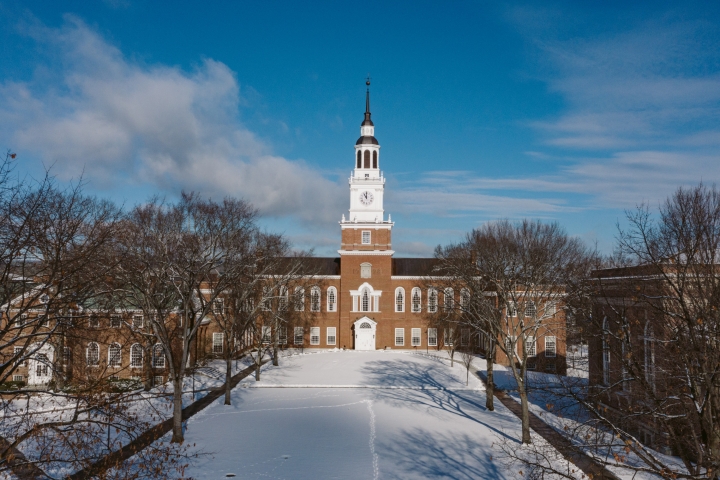On Jan. 8, undergraduates, graduate and professional students, faculty, and staff are receiving an email invitation with a unique code to participate in a voluntary, confidential online survey about sexual misconduct. Student participants will be entered to win a $10 Amazon gift code, with 1,000 to be distributed.
Sponsored by the Equal Opportunity, Accessibility, and Title IX Office, the Sexual Misconduct Survey—the fourth such survey Dartmouth has conducted since 2015—asks about individual experiences with sexual or gender-based harassment, sexual assault, domestic and dating violence, and stalking and seeks to gauge the community’s understanding of available campus resources.
As of 2022, New Hampshire law calls for institutions of higher education to complete surveys of sexual misconduct every other year.
“This survey is invaluable for providing a full picture of the prevalence of sexual violence and misconduct on campus and helping us develop a targeted strategy to address it,” says Kristi Clemens, assistant vice president for equity and compliance and Title IX coordinator.
Participants have until Jan. 29 to complete the survey, which takes approximately 15 minutes to fill out. All data will be analyzed and reported in aggregate.
Clemens encourages everybody to participate. “The results of surveys like this are most meaningful when they reflect a large cross-section of the community. Even if you haven’t personally experienced sexual or gender-based misconduct, your responses matter. The more people in our community who complete the survey, the more accurate the data will be.”
As with past surveys, the Title IX coordinator will publish the aggregated data and use it to develop a plan to move closer to ending sexual violence at Dartmouth.
The results of the 2021 survey, for example, led to an action plan that, among other things, led to an increase in training opportunities for employees and graduate students and creation of robust resources accessible to the community.
Questions about the survey can be sent to Clemens at kristi.l.clemens@dartmouth.edu. For links to past climate survey data and frequently asked questions about this year’s survey, visit the Sexual Respect website.
